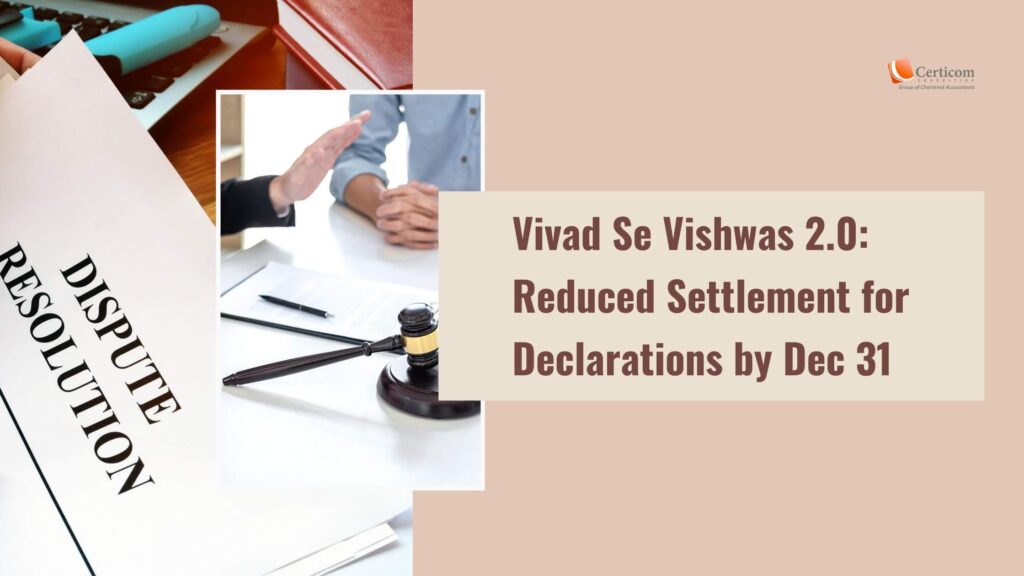Vivad Se Vishwas 2.0: Reduced Settlement for Declarations Filed by December 31

Key Highlights of Vivad Se Vishwas 2.0
The scheme is designed to promote early resolution of tax disputes by offering significant settlement benefits. Taxpayers classified as “new appellants” will be eligible for lower settlement amounts compared to “old appellants.” Even greater reductions are available for those who file before the December deadline. However, after January 1, 2025, the settlement rates will increase by 10%, encouraging taxpayers to act quickly.
The Central Board of Direct Taxes (CBDT) has outlined a step-by-step process for filing under the scheme, which must be done electronically using a new set of forms:
- Form-1: Declaration and Undertaking by the taxpayer.
- Form-2: Certificate issued by the Designated Authority.
- Form-3: Intimation of payment, submitted electronically with proof of appeal withdrawal.
- Form-4: Final Order for Full and Final Settlement by the Designated Authority.
Notably, taxpayers must file a separate Form-1 for each dispute. However, if both the appellant and the Income Tax Authority have filed appeals on the same matter, only one Form-1 is required.

A Move to Manage Litigation
With over 2.7 crore direct tax demands amounting to Rs 35 lakh crore currently under litigation, Vivad Se Vishwas 2.0 is positioned to substantially reduce the backlog of cases. The forms will be made available on the Income Tax Department’s e-filing portal, ensuring a streamlined process for taxpayers.
Businesses to promptly assess their pending income tax disputes and consider utilizing the scheme before the December 31 deadline. Waiting until after this date could lead to increased costs, as settlement rates will rise by 10% starting January 1, 2025. Companies are urged to evaluate the scheme from both a financial and strategic perspective, as the limited window for reduced settlements may present significant opportunities for cost savings.
Take Action Before the Deadline
As the deadline for lower settlement rates approaches, taxpayers must make informed decisions about whether to opt into the Vivad Se Vishwas Scheme 2.0. Early participation could lead to substantial savings and the resolution of long-standing disputes.
Related Post
Top 7 Income Tax Errors That Invite IT Notices
Resident’s Guide to Buying NRI Property in India
Flipkart ESOP Compensation: ₹11 Crore Payout – Salary or Capital Receipt?
Book A One To One Consultation Now For FREE
How can we help? *





